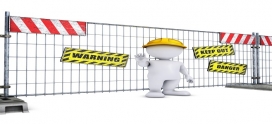How rupee deprecation can impact your financial planning
A lawyer, who had come from a Singapore trip,had been waiting for the rupee to depreciate so that she could exchange the dollars left from the trip into rupee. Last month her wait paid off when rupee had touched record lows. If you had followed news you would notice the fluctuation in rupee in the past few months.The rupee breached formidable resistance of 60 to the dollar to slump to a record low on June 26. What does depreciating rupee means to you and should you be bothered with the falling rupee? First we will try to understand what is depreciating rupee and what is its impact on the economy?Till 2011 the rupee was valued Rs 44-48 against a dollar. This means when rupee depreciates we pay more for each dollar which erodes the purchasing power of the consumers.
For example if you intend to sell $100 and rupee is pegged at Rs48 against dollar then you get Rs4,800 whereas if it depreciates and reaches Rs60 then you get Rs6,000 in exchange. On the other hand, if the dollar appreciates then you will end up gettingless in exchange for a dollar.
Now let’s analyse what impact does rupee has on the economy.Industries which are dependent on imports will have to face tough time with weakening rupee as it increases their cost of production and operations. While it is generally good for industries and sectors like IT, which earn in dollars but global recessionary conditions, may set off the impact.
The weakening rupee also affects us in many ways, so let’s see how it is going to pinch our pockets.
We are reeling under the domestic inflation which is already high. The depreciating rupee is only going to make it worse for us because the price of all imported goods will rise. It has made crude oil, fertilisers, medicines, which India imports in large quantities, costlier. India imports most of the oil it requires.If rupee continues to be weak then it is going to burn a hole in our pocket. Crude palm oil prices set the pace for prices of other edible oils. It is imported in large quantities and any rise in its price will add to the inflationary pressure. Since transportation of goods is dependent on oil hence a higher price for oil might result in increase in price for items such as vegetables and groceries. FMCG, or fast moving consumer goods, such as soaps, detergents, deodorants and shampoos, of which crude oil is an input, are likely to become more expensive.
Similarly the depreciation will have an indirect impact on your investments in the stock market. Foreign institutional investors (FII) tend to lose who had invested in Indian equities because they get lesser dollars with the same amount of rupees. So, even if the rupee investment gains, the dollar value will not increase unless the returns are more than the fall in rupee (against dollar). In this case, FIIs would be wary of investing and are likely to sell more because the weakness in the rupee makes their investment unattractive. Since FIIs contribute to most of the stock market activity, this can keep stock prices subdued.Shares in companies with higher FII holdings will remain under pressure.
Not only you are going to witness a rise in grocery bills but it will pinch more for those who had planned a foreign trip or education abroad. If you have planned a certain budget for holiday or education then be prepared to shell out more because of the weakening rupee. The cost of education will increase as you will have to have pay more in rupees for every dollar now. Students who have taken loans to fund their foreign education will be forced to bear the brunt. Education loans are usually in rupees, but as students pay their expenses in a foreign currency, the cost of education and stay increases.Either you will have to take more loan or pay from your pocket to fill the gap in the expenses. Your holiday budget will also see a change as you will have to pay more for the flight and stay abroad.
Things to watch if you are an investor.
Be careful of sectors exposed to dollar
If you are equity investor then try to avoid exposure in sectors such as oil and gas, pharma, automobile and aviation when the rupee is falling against the dollar. It is because the depreciation hurts companies which have taken foreign currency loans or import raw material.
You should try to avoid using rupee to buy asset abroad
When the rupee is losing value, buying an asset abroad in the Indian currency will be expensive.Try to use funds parked abroad or in exchange earners’ foreign currency (EEFC) account rather than repatriating money in local currency.
Also try not to exit global funds
When you invest in such funds, your money is converted into the currency of the country where the fund invests. Normally when the rupee depreciates against the foreign currency, the fund’s net asset value will rise and the investment will be worth more in rupees.Whenever there is a sharp currency fluctuation, stay invested in global funds for the long term instead of booking profit immediately.



